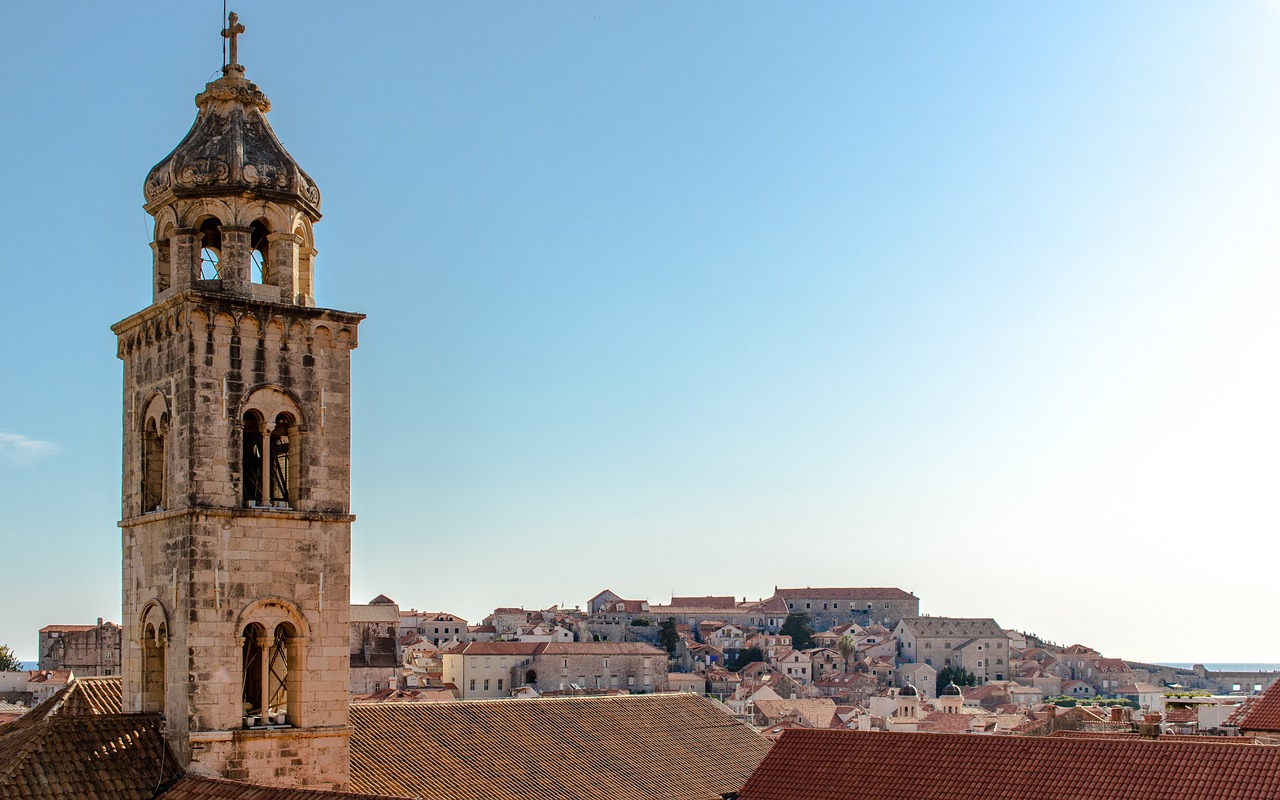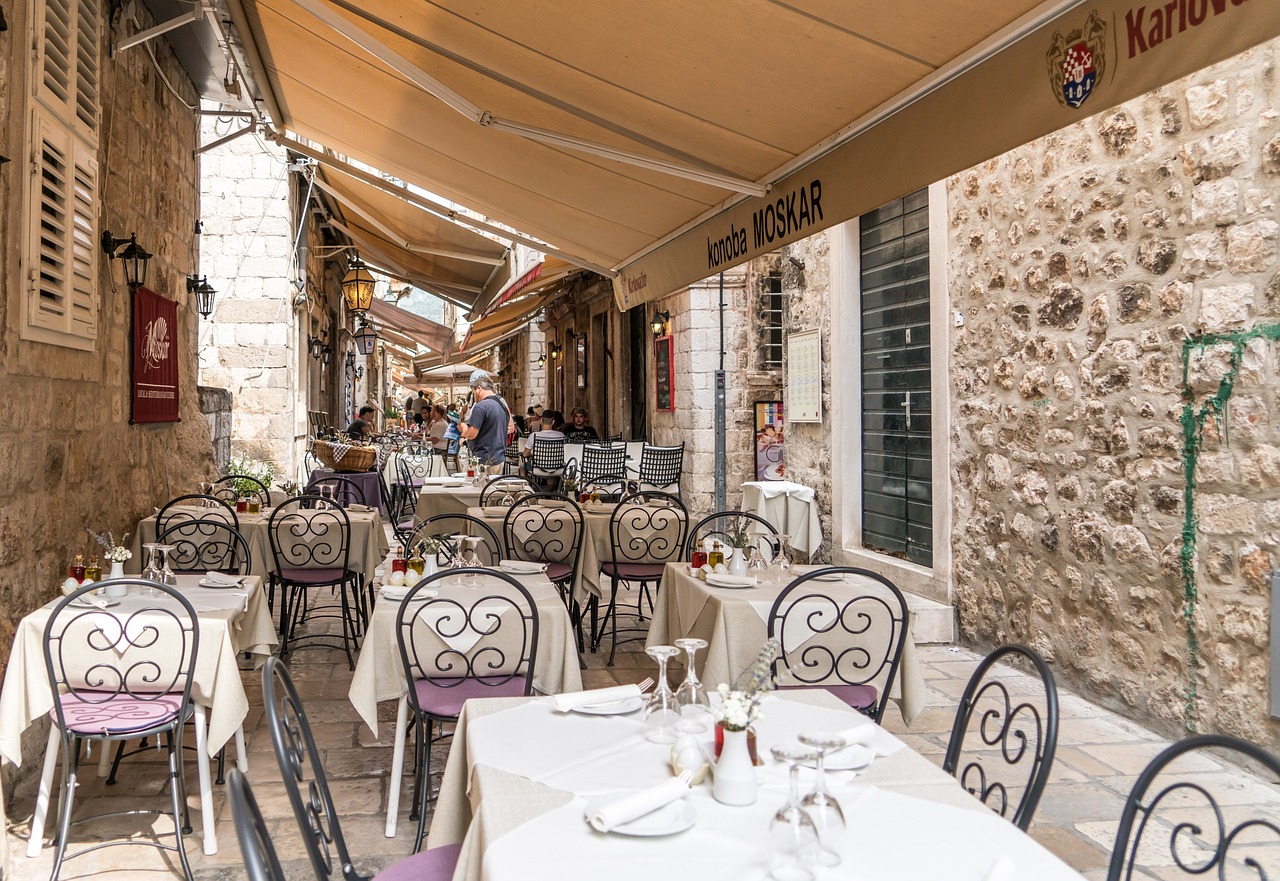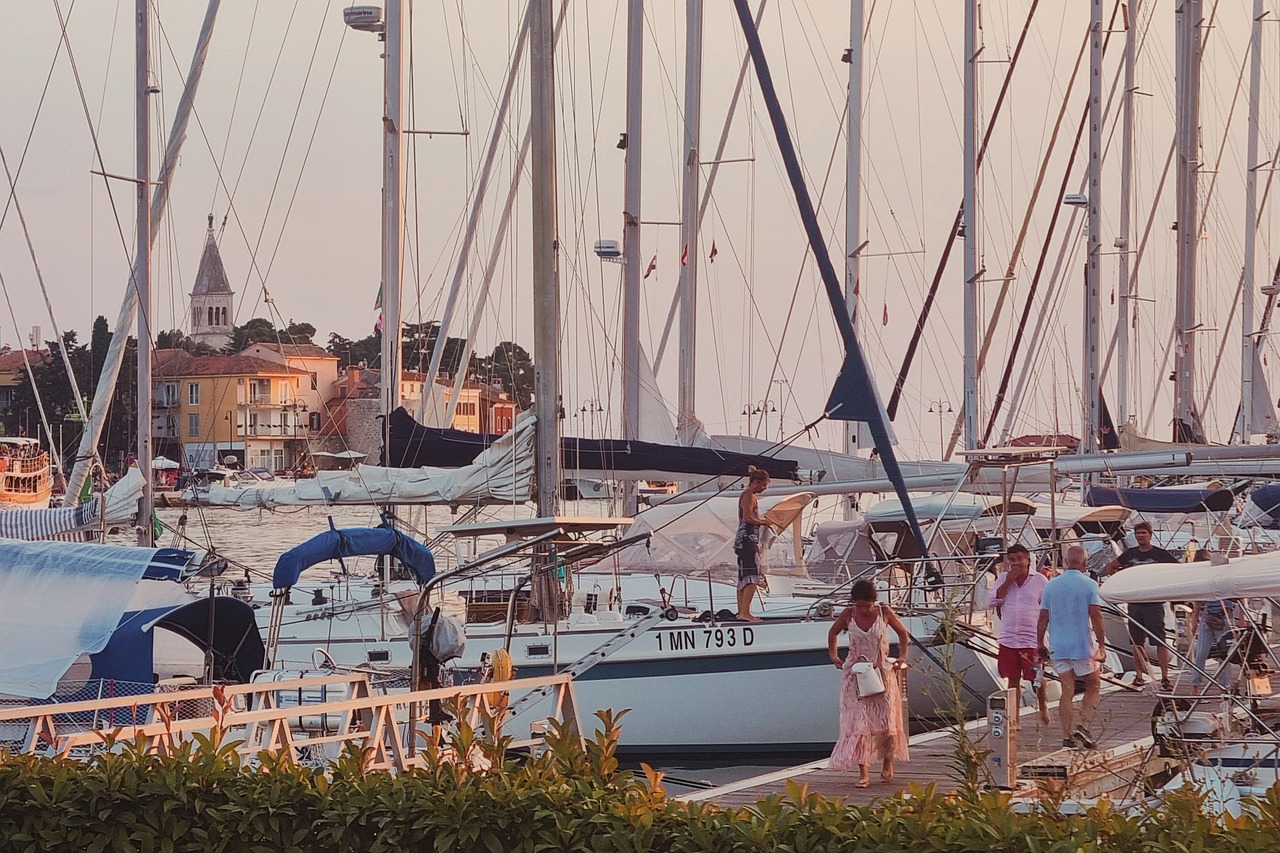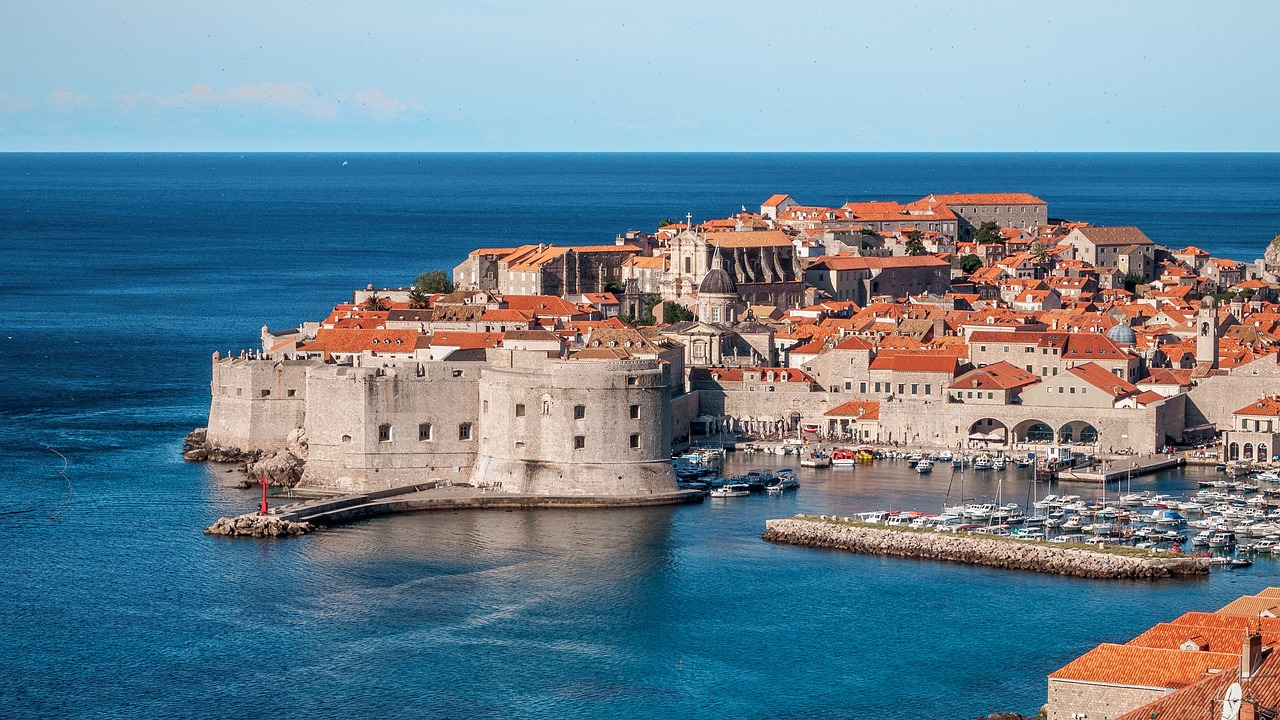Croatia Video
Introduction
Croatia, located in Southeast Europe, is a country known for its stunning landscapes, rich history, and vibrant culture. With its picturesque coastline along the Adriatic Sea, numerous islands, and charming cities, Croatia has become a popular destination for digital nomads and expats seeking a unique and affordable place to live and work.
Croatia For Digital Nomads
Croatia offers a welcoming environment for digital nomads, providing a blend of affordable living, reliable infrastructure, and a growing community of like-minded individuals. The country’s natural beauty and relaxed lifestyle make it an ideal place for remote workers looking for inspiration and work-life balance.
- Affordable Living: Croatia offers a lower cost of living compared to many other European countries. Rent, transportation, and daily expenses are generally more affordable, allowing digital nomads to stretch their budget further.
- Reliable Infrastructure: Croatia has a well-developed infrastructure, including high-speed internet access and modern amenities. Most cities and towns have coworking spaces, cafes, and libraries with reliable Wi-Fi connections, providing digital nomads with a conducive work environment.
- Growing Community: Croatia has seen a rise in the number of digital nomads and expats in recent years. This has led to the establishment of various communities, meetups, and events where individuals can network, collaborate, and share experiences.
Croatia Image 1: 
Croatia Climate
Croatia has a diverse climate due to its geographical location, with Mediterranean and continental influences. The coastal regions enjoy a Mediterranean climate, characterized by hot, dry summers and mild winters. Inland areas experience a more continental climate, with hot summers and cold winters.
- Coastal Climate: The coastal regions of Croatia, including popular destinations like Dubrovnik and Split, have hot summers with temperatures often reaching 30°C (86°F) or higher. Winters are mild, with temperatures rarely dropping below 10°C (50°F).
- Inland Climate: Inland areas, such as Zagreb and Plitvice Lakes National Park, have hot summers and cold winters. Summers can be quite warm, with temperatures averaging around 25°C (77°F), while winters can be cold, with temperatures sometimes dropping below freezing.
- Seasonal Variations: Croatia experiences distinct seasons, with spring and autumn being pleasant and ideal for outdoor activities. Summer is the peak tourist season, with crowded beaches and higher prices, while winter offers opportunities for skiing and winter sports in the mountainous regions.
Croatia Image 2: 
Croatia Expat Communities
Croatia has a growing expat community, attracting individuals from around the world who have chosen to make the country their home. These communities offer support, networking opportunities, and a sense of belonging for expats living in Croatia.
- Zagreb Expat Community: The capital city, Zagreb, is home to a diverse expat community. Expats can join various social groups, clubs, and organizations catering to different interests, such as sports, arts, and culture.
- Coastal Expat Communities: The coastal regions of Croatia, including popular destinations like Split, Zadar, and Rijeka, have vibrant expat communities. These communities often organize social events, language exchanges, and activities to help expats connect and integrate into the local culture.
- Online Expat Forums: There are several online forums and social media groups where expats in Croatia can connect, ask questions, and share advice. These platforms provide a virtual community for expats to seek support and guidance.
Living As An Expat In Croatia
Living as an expat in Croatia offers a unique experience filled with cultural immersion, stunning landscapes, and a relaxed lifestyle. Here are some key aspects to consider when living as an expat in Croatia:
- Language: The official language in Croatia is Croatian. While English is widely spoken, especially in tourist areas and larger cities, learning some basic Croatian phrases can enhance your experience and help you connect with locals.
- Cost of Living: The cost of living in Croatia is generally lower compared to many other European countries. Rent, groceries, dining out, and entertainment are affordable, allowing expats to maintain a comfortable lifestyle without breaking the bank.
- Healthcare: Croatia has a well-developed healthcare system, providing quality medical care to residents and expats. It is recommended for expats to have comprehensive health insurance to cover any medical expenses.
Croatia Image 3: 
Croatia Cost Of Living
Croatia offers an affordable cost of living, making it an attractive destination for digital nomads and expats looking to make the most of their budget. The cost of living can vary depending on the city or region, but overall, Croatia offers good value for money.
- Accommodation: Rent prices in Croatia vary depending on the location and the type of property. In cities like Zagreb, a one-bedroom apartment in the city center can cost around 4,000 HRK ($640) per month, while in smaller towns, the prices can be significantly lower.
- Groceries: The cost of groceries in Croatia is generally affordable. A weekly shopping trip for basic food items for one person can cost around 200 HRK ($32). Local markets offer fresh produce at reasonable prices.
- Dining Out: Eating out in Croatia can be affordable, especially in local restaurants and cafes. A meal at a mid-range restaurant can cost around 80 HRK ($13), while a coffee or beer can cost around 10-15 HRK ($1.60-$2.40).
Croatia Visas For Digital Nomads
Croatia offers several visa options for digital nomads looking to stay in the country for an extended period. It’s important to understand the visa requirements and regulations before planning your stay in Croatia.
- 90-Day Visa-Free Stay: Citizens of many countries, including the United States, Canada, and most European Union countries, can enter Croatia without a visa and stay for up to 90 days within a 180-day period. This visa-free stay is suitable for short-term visits and tourist activities.
- Temporary Stay Visa: Digital nomads planning to stay in Croatia for longer than 90 days can apply for a Temporary Stay Visa. This visa allows for a stay of up to one year and can be renewed if needed. Requirements for this visa include proof of accommodation, health insurance, and sufficient financial means to support yourself during your stay.
Croatia Transportation
Croatia has a well-connected transportation system that makes it easy to travel within the country and explore its various regions. Whether you prefer to travel by air, road, or sea, Croatia offers convenient options for getting around.
- Air Travel: Croatia has several international airports, including Zagreb Airport, Split Airport, and Dubrovnik Airport. These airports offer domestic and international flights, making it easy to travel to and from Croatia.
- Public Transportation: Croatia has an extensive network of buses and trains that connect major cities and towns. Buses are the most common mode of public transportation, offering affordable and reliable services.
- Ferries and Boats: Croatia’s coastline and islands are best explored by ferry or boat. There are regular ferry services connecting the mainland with various islands, providing breathtaking views and an opportunity to experience the Adriatic Sea.
Croatia Airports
Croatia has several airports that serve domestic and international flights, providing convenient access to different parts of the country. Here are some of the major airports in Croatia:
- Zagreb Airport (ZAG): Located in the capital city, Zagreb Airport is the largest and busiest airport in Croatia. It offers numerous domestic and international flights, connecting Croatia with various European cities.
- Split Airport (SPU): Situated near the city of Split, Split Airport is another major international airport in Croatia. It serves as a gateway to the Dalmatian coast and the nearby islands, offering flights to various European destinations.
- Dubrovnik Airport (DBV): Located near the city of Dubrovnik, Dubrovnik Airport is an important hub for tourism in Croatia. It provides connections to several European cities and serves as a popular entry point for visitors exploring the southern part of the country.
Facts About Croatia
Croatia is a country with a rich history, stunning natural landscapes, and a vibrant culture. Here are some interesting facts about Croatia:
- Geographical Diversity: Croatia has a diverse geography, with a long coastline along the Adriatic Sea, mountainous regions, and lush national parks. This diversity offers a wide range of outdoor activities and breathtaking scenery.
- Game of Thrones Filming Locations: The popular TV series “Game of Thrones” filmed several scenes in Croatia, including in Dubrovnik, Split, and Šibenik. Fans of the show can explore these locations and immerse themselves in the world of Westeros.
- Plitvice Lakes National Park: One of Croatia’s most famous attractions, Plitvice Lakes National Park is a UNESCO World Heritage Site known for its cascading waterfalls, crystal-clear lakes, and lush forests. It is a must-visit destination for nature lovers.
Fun Things To Do In Croatia
Croatia offers a wide range of activities and attractions for digital nomads and expats to enjoy during their stay. Here are some fun things to do in Croatia:
- Explore the Old Town of Dubrovnik: Wander through the narrow streets of Dubrovnik’s Old Town, a UNESCO World Heritage Site. Admire the historic buildings, walk along the city walls, and enjoy panoramic views of the Adriatic Sea.
- Visit Plitvice Lakes National Park: Discover the natural beauty of Plitvice Lakes National Park, with its interconnected lakes, waterfalls, and lush vegetation. Take a guided tour or explore the park’s hiking trails at your own pace.
- Island Hopping: Croatia’s coastline is dotted with beautiful islands. Take a ferry and explore islands like Hvar, Brač, and Korčula, known for their stunning beaches, charming villages, and vibrant nightlife.
Croatia Image 1: 
Popular Croatia Tourist Attractions
Croatia is home to numerous tourist attractions that showcase its natural beauty, historical sites, and cultural heritage. Here are some popular tourist attractions in Croatia:
- Diocletian’s Palace (Split): Explore the ancient ruins of Diocletian’s Palace in Split, a UNESCO World Heritage Site. This well-preserved palace complex is a testament to the Roman Empire’s architectural prowess.
- St. Mark’s Church (Zagreb): Admire the colorful roof tiles of St. Mark’s Church in Zagreb’s Upper Town. The church’s intricate design and historical significance make it a must-visit attraction in the capital city.
- Plitvice Lakes National Park: Immerse yourself in the natural beauty of Plitvice Lakes National Park, with its cascading waterfalls and turquoise lakes. Explore the park’s well-maintained trails and enjoy the breathtaking scenery.
Croatia Cities
Croatia is home to several vibrant cities that offer a mix of historical landmarks, cultural experiences, and modern amenities. Here are some notable cities in Croatia:
- Zagreb: As the capital city, Zagreb is the cultural and political hub of Croatia. It boasts a blend of Austro-Hungarian architecture, lively markets, and a thriving arts scene.
- Split: Located on the Dalmatian coast, Split is known for its ancient Roman ruins, including Diocletian’s Palace. The city offers a vibrant atmosphere, with bustling markets, charming cafes, and a lively waterfront promenade.
- Dubrovnik: Dubrovnik is a UNESCO World Heritage Site and a popular tourist destination. The city’s well-preserved medieval walls, marble streets, and stunning views of the Adriatic Sea make it a must-visit city in Croatia.
Croatia Internet Speed and Accessibility
Croatia has a reliable internet infrastructure, providing digital nomads and expats with fast and accessible internet connections. Here are some key points regarding internet speed and accessibility in Croatia:
- Internet Speed: Croatia offers good internet speeds, with average download speeds ranging from 20-50 Mbps. Larger cities and tourist areas generally have faster internet connections.
- Wi-Fi Availability: Wi-Fi is widely available in Croatia, with most hotels, cafes, and restaurants offering free Wi-Fi for customers. Many cities also have public Wi-Fi hotspots in parks and public spaces.
- Coworking Spaces: Croatia has a growing number of coworking spaces, especially in cities like Zagreb, Split, and Dubrovnik. These spaces provide a dedicated work environment with high-speed internet and networking opportunities.
Croatia Accommodation
Croatia offers a variety of accommodation options to suit different budgets and preferences. Whether you prefer hotels, vacation rentals, or apartment rentals, there are plenty of choices available.
Popular Croatia Hotels
Croatia is home to a wide range of hotels, from luxury resorts to budget-friendly options. Here are some popular hotels in Croatia:
- Hotel Dubrovnik Palace (Dubrovnik): Located on the Lapad Peninsula, Hotel Dubrovnik Palace offers stunning views of the Adriatic Sea. It features modern rooms, a spa, outdoor pools, and direct access to a private beach.
- Hotel Esplanade Zagreb (Zagreb): Situated near the main train station, Hotel Esplanade Zagreb is a historic luxury hotel known for its elegant rooms, fine dining options, and impeccable service.
- Hotel Park (Split): Hotel Park is a stylish hotel located near the city center of Split. It offers comfortable rooms, a rooftop terrace with panoramic views, and easy access to the city’s main attractions.
Popular Croatia Vacation Rentals
For those seeking a more independent and home-like experience, vacation rentals are a popular choice in Croatia. Here are some popular vacation rentals in Croatia:
- Villa Dubrovnik (Dubrovnik): Villa Dubrovnik offers luxurious waterfront villas with private pools and beautiful views of the Adriatic Sea. These villas provide a secluded and exclusive retreat for a memorable vacation.
- Villa Ana (Hvar Island): Located on Hvar Island, Villa Ana offers charming apartments with sea views and easy access to the island’s beaches and attractions. The apartments are well-equipped for a comfortable stay.
- Villa Adriatica (Rovinj): Villa Adriatica is a boutique villa in the picturesque town of Rovinj. It offers stylishly decorated apartments with modern amenities and a central location near the town’s attractions.
Popular Croatia Apartment Rentals
Apartment rentals provide a flexible and affordable option for long-term stays in Croatia. Here are some popular apartment rentals in Croatia:
- Apartment Adriatic (Zagreb): Apartment Adriatic offers modern and well-furnished apartments in the heart of Zagreb. The apartments are centrally located, providing easy access to the city’s attractions and amenities.
- Apartment Dalmacija (Split): Located in the historic center of Split, Apartment Dalmacija offers comfortable and spacious apartments with fully equipped kitchens. The apartments are within walking distance of Split’s main sights.
- Apartment Istria (Pula): Apartment Istria is situated in the charming city of Pula, known for its Roman ruins and beautiful coastline. The apartments provide a comfortable base for exploring the city and its surroundings.
Croatia Food & Drink
Croatian cuisine is influenced by its neighboring countries and the Mediterranean region. From fresh seafood to hearty meat dishes, Croatia offers a diverse culinary experience. Here are some highlights of Croatian food and drink:
- Seafood: With its long coastline, Croatia is known for its delicious seafood. Fresh fish, shellfish, and octopus are commonly featured in traditional Croatian dishes, such as grilled fish and black risotto.
- Peka: Peka is a traditional Croatian cooking method that involves slow-cooking meat and vegetables under a bell-shaped lid. This technique infuses the ingredients with rich flavors and results in tender and succulent dishes.
- Wine: Croatia has a long history of winemaking, with several regions producing high-quality wines. The coastal regions, such as Istria and Dalmatia, are known for their white wines, while the inland regions, like Slavonia, produce excellent red wines.
Croatia Grocery Stores
Croatia has a well-developed grocery store network, offering a wide range of products to cater to different dietary needs. Here are some popular grocery store chains in Croatia:
- Konzum: Konzum is the largest supermarket chain in Croatia, offering a variety of groceries, household items, and fresh produce. It has numerous locations throughout the country, including major cities and towns.
- Spar: Spar is another popular supermarket chain in Croatia, known for its wide selection of products and competitive prices. It has both large hypermarkets and smaller neighborhood stores.
- Lidl: Lidl is a discount supermarket chain that offers affordable groceries and household items. It is popular among budget-conscious shoppers and has a growing presence in Croatia.
Conclusion
Croatia offers a unique blend of natural beauty, rich history, and a welcoming environment for digital nomads and expats. With its affordable cost of living, reliable infrastructure, and vibrant expat communities, Croatia has become an attractive destination for those seeking a fulfilling and adventurous lifestyle. Whether you’re exploring the ancient streets of Dubrovnik, enjoying the stunning landscapes of Plitvice Lakes National Park, or working remotely from a charming coastal town, Croatia offers endless possibilities for digital nomads and expats.
References
– Croatian National Tourist Board: www.croatia.hr
– Expat in Croatia: www.expatincroatia.com
– Nomad List: nomadlist.com
– Lonely Planet Croatia: www.lonelyplanet.com/croatia


